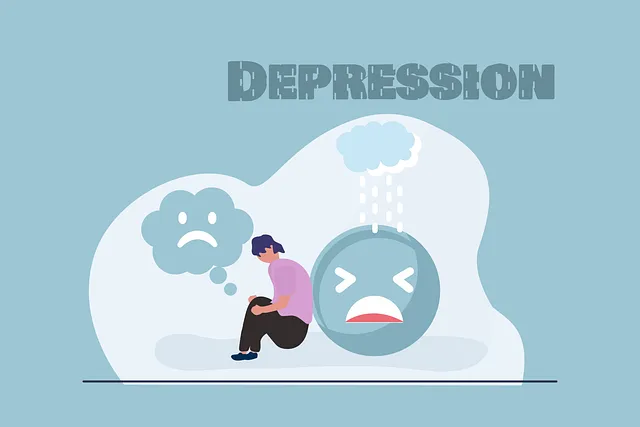Kaiser Permanente's Mental Health Centennial initiative addresses burnout among healthcare professionals by focusing on systemic factors, compassion cultivation, and cultural competency training. They prioritize staff well-being through access to Trauma Support Services, regular check-ins, mindfulness programs, and educational initiatives, fostering a supportive work environment centered around holistic wellness. Resilience is cultivated through long-term strategies like Compassion Cultivation and Inner Strength Development, improving patient care by maintaining engaged, compassionate, and effective healthcare providers.
Healthcare provider burnout is a growing concern, particularly within large organizations like Kaiser Permanente. This article explores strategies to prevent burnout among healthcare providers using the Kaiser Permanente Mental Health Centennial as a unique perspective. We delve into understanding burnout’s root causes and present a comprehensive approach to prevention. Furthermore, we emphasize long-term solutions that foster resilience in practices, ensuring sustainable healthcare delivery for the future.
- Understanding Burnout Among Healthcare Providers: The Kaiser Permanente Mental Health Centennial Perspective
- Strategies for Preventing Burnout: A Comprehensive Approach
- Fostering Resilient Practices: Long-term Solutions for Sustainable Healthcare Delivery
Understanding Burnout Among Healthcare Providers: The Kaiser Permanente Mental Health Centennial Perspective

Burnout among healthcare providers is a growing concern, especially within large organizations like Kaiser Permanente. The Mental Health Centennial initiative at Kaiser Permanente offers valuable insights into this issue. This perspective highlights the complex interplay between intense work environments, high patient loads, and limited resources, which can lead to emotional exhaustion, depersonalization, and decreased personal accomplishment among healthcare professionals.
The initiative emphasizes that understanding burnout is not merely about recognizing symptoms but also involves a comprehensive analysis of systemic factors. It advocates for integrating compassion cultivation practices and healthcare provider cultural competency training as essential tools to mitigate burnout. Additionally, mental health policy analysis and advocacy are crucial components in creating sustainable solutions, ensuring healthcare providers receive the support and recognition they deserve.
Strategies for Preventing Burnout: A Comprehensive Approach

At Kaiser Permanente Centennial, we understand that burnout is a significant concern for healthcare providers, impacting their well-being and patient care. A comprehensive approach to burnout prevention involves not only physical but also mental health strategies. By prioritizing emotional healing processes, we empower our staff to manage stress effectively. This includes access to Trauma Support Services, as recognizing and addressing past traumas is vital in fostering resilience.
Additionally, creating a supportive work environment with regular check-ins and open communication encourages providers to share their experiences and challenges. Educational programs focused on burnout prevention, mindfulness techniques, and self-care practices further equip our team with the tools needed to navigate the demanding healthcare landscape.
Fostering Resilient Practices: Long-term Solutions for Sustainable Healthcare Delivery

In healthcare, fostering resilience isn’t just a buzzword—it’s a vital strategy for preventing burnout among providers. Organizations like Kaiser Permanente Centennial are leading the way in implementing long-term solutions that promote sustainable delivery of care. By integrating practices such as Compassion Cultivation and Inner Strength Development, healthcare professionals can build coping skills to navigate the demanding nature of their work.
These initiatives go beyond immediate stress relief, aiming to cultivate a culture where resilience is nurtured and encouraged. Through mindfulness exercises, emotional intelligence training, and support networks, providers can enhance their ability to handle challenges. Ultimately, these strategies not only mitigate burnout but also improve patient care by ensuring healthcare professionals remain engaged, compassionate, and effective in their practice, reflecting the commitment of organizations like Kaiser Permanente to holistic wellness and sustainable service delivery.
Burnout among healthcare providers is a pressing issue, as highlighted by the Kaiser Permanente mental health Centennial study. By adopting comprehensive strategies that focus on understanding burnout root causes, implementing resilient practices, and fostering sustainable work environments, healthcare organizations can effectively prevent provider burnout. These long-term solutions not only benefit individual practitioners but also enhance the overall quality of patient care and the resilience of the healthcare system as a whole.






